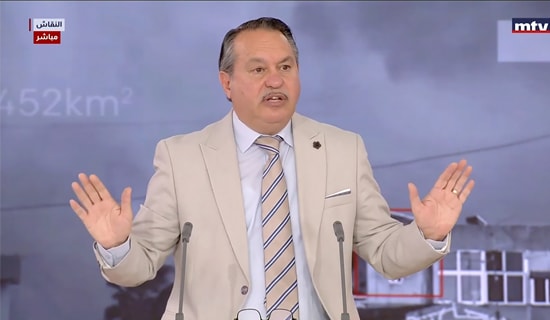Introduction
On October 17, 2008, Muslims in India and Pakistan celebrate the 191st birthday of the great Indian reformer Sir Syed Ahmad Khan (1817-1898). However, few understand the meaning of Islamic reform as he did.
The following report was originally published by the liberal Arab website Aafaq, at http://www.aafaq.org/english/aafaq_today.aspx?id_news=162 .
Two Responses to the Same Crisis: Islam in India After the 1857 British Occupation
Following the 1857 war, in which Muslims lost power to the British, two intellectual movements emerged in India. One group of scholars attributed the Fall of Delhi to moral decline among the Mughal kings, rejected the West and its message of reform, and revived basic Islamic teachings. Led by Maulana Muhammad Qasim Nanautawi, they established Darul Uloom Deoband, the largest center of Islamic learning after Cairo's Al-Azhar University.
A second group of scholars, under Sir Syed, foresaw a bright future for Muslims in rejecting religious orthodoxy and in embracing Western sciences. They founded Aligarh Muslim University, India's largest center of modern education for Muslims today, near Delhi.
The two legacies of Islamic reform also explain why the Deobandi madrassas in Pakistan are breeding jihadist fighters, while the Deobandi madrassas in India are marginalized in the political and cultural climate created by Western democracy, religious pluralism, and Sir Syed Ahmed Khan's message of enlightenment.
Sir Syed Triumphed in Circumstances Similar to the Aftermath of 9/11 and 7/7
In his book The Last Mughal, William Dalrymple notes that the defeat and humiliation of the vanquished in the 1857 war was accompanied by cultural and political turmoil among Indian Muslims. The feeling of loss experienced by Muslims after 1857 was similar to the siege and anger among Muslim societies after the attacks of 9/11 and 7/7. While we do not see a substantive reform movement starting after 7/7, it will be pertinent to examine Sir Syed's approach to Islamic reform.
After 1857, Sir Syed visited Cambridge University, learned about the British educational system and the European Enlightenment, and returned to India to work for political rapprochement with the new colonial rulers.
Despite hostile Muslim opposition to British rule, and despite mass illiteracy and religious orthodoxy, Sir Syed argued that Muslims could succeed only through scientific education. He started a magazine called Tahzib al-Akhlaq ("The Social Reformer"), organized intellectuals, and established the Scientific Society, styled after the Royal Society of London. He held conferences, published journals on scientific subjects, and wrote a reinterpretation of the Koran underlining an appreciation of science and rationality. He also authored a commentary on the Bible that emphasized the affinities between Islam and Christianity.
Sir Syed's insistence on upholding scientific reason in interpreting religious texts was fundamental to his vision of Islamic reform. It created a generation of reformist Muslim intellectuals. Today, teenagers in India and Pakistan remember him as the greatest figure in South Asia's reform movement.
Sir Syed succeeded in circumstances that were similar to post-7/7 conditions among British Muslims, most of whom are from Pakistan. Following 9/11, every writer emphasized education as the only way forward for Muslims. However, the issue is not that Muslim societies lack ideas; the issue is that they nurse ideas that are inconsistent with the values of democracy and enlightenment. Sir Syed's framework for Islamic reformation, with its basis of rationality, is the proven model for Muslim societies in the throes of religious orthodoxy, siege mentality, and suicide bombings.
Following in his footsteps, Muslim societies need to borrow positive elements from the West: democratic governance, political freedom, free press, modern education, and individual liberty. These universal values are at work in India, creating space for political and cultural freedoms. India is perhaps the only country where religious scholars have delivered fatwas against suicide bombings. Indian Muslims have generally not been attracted to jihadists. This is an example of how open societies can defeat Islamists.
The Muslim World Should Understand That the West is a Framework of Democratic Values, Not a Geographical Concept
As Sir Syed advocated, Muslims should abandon hostility to the West and benefit from its educational and political achievements. Muslims should understand that the West is a framework of universal democratic values."The West" is a non-geographic concept, with Eastern nations as diverse as New Zealand, Australia, Japan, and increasingly India as a part of it. The West is intellectually dialogic rather than colonial in nature.
Muslim societies should enter into dialogue with the West, but must be aware that the West and the Islamists understand the meaning of dialogue differently. For Islamists, dialogue is a bridge they can walk over. For the West, dialogue means critical intellectual engagement in which individuals use their minds to resolve their problems - instead of relying on religious or other ideologies. Nobel Laureate Octavio Paz summed up the West's conception of dialogue: "Dialogue is the opposite of the silence that ignores us; dialogue is the opposite of the noise that denies us."
Sir Syed thought of Islamic reformation in a dialogic sense in which Muslims could learn from the European Enlightenment. He recognized that progress and power result from education and human endeavour. Islamists, on the contrary, think that wealth and progress flow from power.
The time is now for the Muslim world to take a lesson from one of its own reformers, and to set up in every Muslim country modern universities of education for Muslims - universities that, instead of promoting religion, will stand for the independent dignity of human endeavour.
*Tufail Ahmad is Director of Urdu-Pashtu Media Project at the Middle East Media Research Institute (www.memri.org ).








